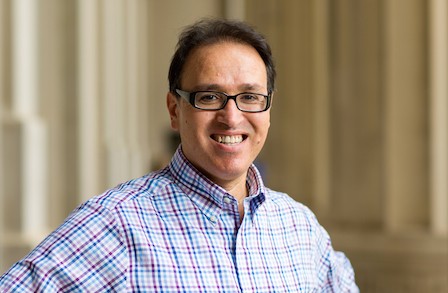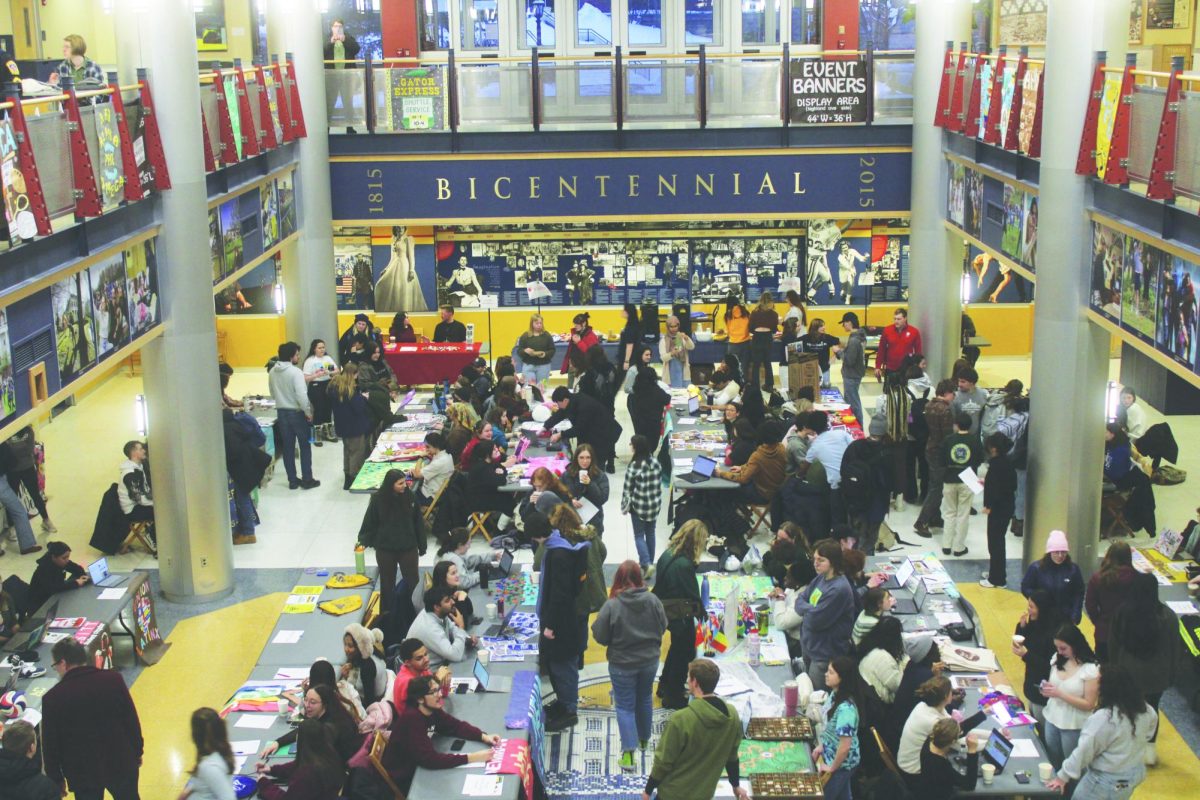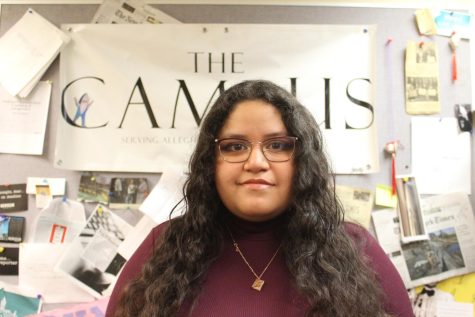
The Allegheny College English department is concluding its Single Voice Reading series with Khaled Mattawa as the last author — though the event has been postponed from its original date of Thursday, March 21. In an email Wednesday, Professor of English Christopher Bakken, the organizer of the Single Voice series, wrote that Mattawa had fallen ill and his reading would be rescheduled to a later date.
When he visits campus, Mattawa will read and discuss his book “Fugitive Atlas,” a collection of poems that spotlights the refugee crisis, exploitation, ecological degradation and politics.
Bakken described the societal impact that Mattawa’s collection has on the perspectives of those who may not have otherwise been exposed to struggles around the world.
“I think one of the things that Mattawa’s poetry does is bear witness to the struggles of the people of Libya, but also of people all over the Mediterranean region,” Bakken said. “And his poems give us an occasion to pay attention to those struggles, even if much of the way we live in this country wouldn’t give us an occasion to do so.”
“Fugitive Atlas” brings together many of the themes of Mattawa’s early work, according to Bakken. The collection sits within the context of Libyan politics, he added.
“Mattawa is from Libya but was raised in the United States, in part because Libya was overseen by a dictator, Muammar Gaddafi, for 42 years,” Bakken said. “Much of this collection is written in the wake of the overthrow of that dictator, at a moment when Mattawa himself, but also his country and many other countries in the region, were contemplating what happens next.”
Bakken gave an overview of the form Mattawa uses in his poetry and how he connects documented facts to emotions through poetry.
“Much of Mattawa’s book takes shape in three-lined stanzas, but also in a complicated form called haibun, which is a mixture of prose and short-form poetry,” Bakken said. “In the prose passages in these poems, he’s often documenting, even quoting newspaper articles, and then asking the poetic sections to respond.”
Through the choices made in the collection, Bakken said Mattawa has been able to reach audiences who are unfamiliar with the regions he discusses.
“He knows he is writing for an audience that probably doesn’t have a working knowledge of Arabic and a good historical knowledge of every single country in the region he is writing about,” Bakken said. “So it’s telling that his book has four pages of double-spaced endnotes to help fill in the blanks of the references that these poems make, which is to say he’s offering readers unfamiliar with his region a full education in this book.”
Assistant Professor of Arabic and Chair of International Studies Sami Alkyam discussed “archive fever,” and how it presents in Mattawa’s work.
“It’s a feeling that you have when you enter an archive — which could be like a section in the library or a section in your mind,” Alkyam said. “For example, the Holocaust, for Jewish people, the moment they hear the word, especially the older generation, it triggers something in their mind.”
Alkyam said that the same phenomenon occurs for individuals, such as Mattawa, who live in exile from their home country.
“At that moment, they remember when they arrived,” Alkyam said. “For example, in one of his poems, he would tell you how he felt for the first time when his mom waved her hands to him when he decided to leave for the first time.”
One of the themes Mattawa explores in his poetry and Alkyam responds to is the experience of being someone who has a dual identity as Libyan and American.
“The problem I have seen is that you are not viewed as an authentic to the people back home and you are not viewed as an authentic to the nation you are taking refuge in,” Alkyam said. “It puts you in a situation where every once in a while, something will happen and it makes you question who you are.”
Alkyam had high praise for poets and their ability to change the world through their tendency to look for ways to improve people’s lives and their focus on emotions.
“I would not mind putting poets in charge of everything in the world,” Alkyam said. “They are human beings whose main concern is about making the world a better place to inhabit and making the world a place where we can coexist.”
Madeline Allen, ’24, has familiarized herself with Mattawa’s work through her advanced poetry workshop and is looking forward to his visit to the college.
“I personally just love hearing writing read out loud,” Allen said. “I think that it brings writing to life in a different way and you hear things with different emphasis and they just mean new things.”
Through Mattawa’s collection, Allen says that people will become more aware and interested in the events that occur in the world.
“When we are encountering things in the news, sometimes it’s really easy to read headlines and not see people,” Allen said. “I think this collection forces you to see people, it forces you to see the man that built the boats, that are carrying immigrants across the water, it forces you to see that man’s wife. It forces you to see soldiers who are willing or unwilling and who’s left behind.”




